Looking at this implementation of std::shared_ptr https://thecandcppclub.com/deepeshmenon/chapter-10-shared-pointers-and-atomics-in-c-an-introduction/781/ :
Question 1 : I can see that we're using std::atomic<int*> to store the pointer to the reference count associated with the resource being managed. Now, in the destructor of the shared_ptr, we're changing the value of the ref-count itself (like --(*reference_count)). Similarly, when we make a copy of the shared_ptr, we increment the ref-count value. However, in both these operations, we're not changing the value of the pointer to the ref-count but rather ref-count itself. Since the pointer to ref-count is the "atomic thing" here, I was wondering how would ++ / -- operations to the ref-count be thread-safe? Is std::atomic implemented internally in a way such that in case of pointers, it ensures changes to the underlying object itself are also thread-safe?
Question 2 : Do we really need this nullptr check in default_deleter class before calling delete on ptr? As per Is it safe to delete a NULL pointer?, it is harmless to call delete on nullptr.
